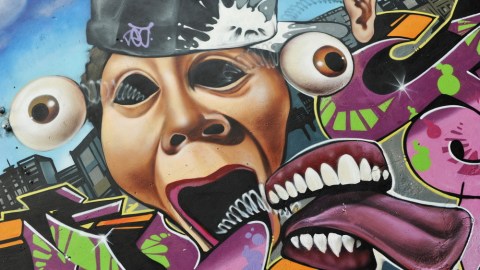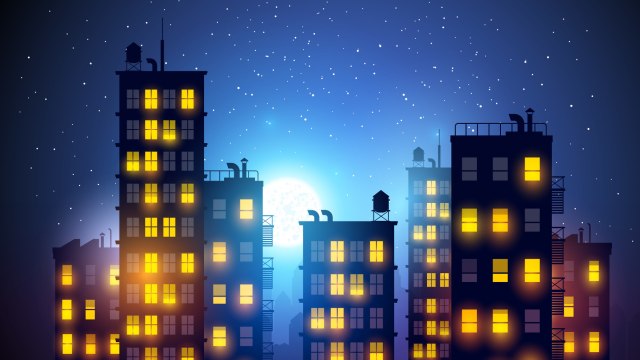Can psychedelics be addictive?

Image source: 1000 Words / shutterstock.com
Last week I wrote about the potential for religious experiences on psychedelics. This was beyond usage for therapeutic reasons, an area of science that’s rapidly expanding: For example, outside of the examples cited in my article, last week the DEA approved the usage of MDMA for research in treating social anxiety in adults with autism.
One of the selling points of psychedelics is that they are not addiction-forming, like opioids, narcotics, cellphones, and caffeine. In fact, as I wrote, some psychedelics, such as psilocybin and iboga, could possibly help addicts in recovery.
Yet is it true that psychedelics are not addictive? While chemically they might not be pattern-forming in the way your morning (and afternoon, and evening) coffee is, claiming that there are no addicts is hard to swallow. I would argue that an entire American subculture is proving otherwise, tuning out of real social issues while exploiting their own egoistic self-expansion.
In my previous column, I suggested that reduction of anxiety levels, one of the greatest therapeutic benefits of psychedelics, is a gateway for the loosening of the ego and thus a spiritual experience. The problem is that a dependence on such substances to feel this weightlessness develops. Instead of a tool, psychedelics become a shackle.
I’ve had over one hundred episodes with psychedelics, including LSD, psilocybin, MDMA, mescaline, peyote, and ayahuasca. The bulk of these, however, came during a 15-month period in the mid-’90s. Without divulging too much personal history, roughly three-quarters of my usage occurred during this time.
Having grown up a sober athlete, my introduction to psychedelics introduced me to a previously unimagined universe. In fact, I experimented with almost all of those substances before the first time I got drunk, which didn’t happen until a few months before I turned 21.
Back then I had no idea about the human brain’s novelty bias, the dopamine-releasing system that fires up every time you hear a text ding. Heroin users have told me their first experience was so incredible that the rest of their time was spent chasing that feeling, never again reached. Cigarette smokers have mentioned that mostly it’s just craving, yet every so often one really hits the spot. Anxiety until the fix is fixed.
Novelty is what drove me to experimentation. What you experience on psychedelics is so unlike everyday reality it becomes a refuge sheltering you from the “real” world. You have visions; you gain insights. You feel a part of the world as never before. In your solitude, you no longer feel lonely. Your brain’s ego centers shut down; you feel a part of everything; everything just feels right — a much better place than the mundane, where so much seems so wrong.
Over the past two decades, I’ve watched friends dive deep into the psychedelic waters. I recognize where they are because I had to eventually swim upstream to fight my way out. I’m not advocating against these substances in any way: I still partake, when the time is right, perhaps once a year. It’s the constant craving for more — the novelty — that flung me further and further from where I actually needed to be to become productive and more in control of my life.
This is where a spiritual experience becomes a fundamentalist one. I hear similar verbiage from psychedelics users as from the Christian right and hardline Muslims. This is the way it is. This is what humanity needs to do to survive. This is where we went wrong.
Then comes the added layer of “more” that hardcore yogis also partake in. There’s always a new level being reached. Revelations are constant. Each time the experience is deeper. And each time the ego — the thing supposedly being dissolved — rears its ugly head, stronger, more certain of itself, more demanding in its sacrifices. Of course, the only way to “more” is to go deeper into the “medicine,” the term most often applied to regular psychedelic use.
The question remains: What is making them sick in the first place? How is substance abuse curing them?
This is where all religions have the potential to become a trap: There’s always another level; there’s always someone/thing higher waiting for you; there needs to be more sacrifice. This motif has been with our species for millennia. While it appears in wildly disparate ways, appear it does. Psychedelic cosmonauts carry this torch as proudly as conservatives and fundamentalists everywhere.
Again, none of this is to dissuade experimentation or research. I for one am happy that the substances that played such an important role in my formative years are being taken seriously as therapeutic tools, and I hope this research bears much fruit in the coming years.
As my friend and colleague Tommy Rosen writes in his book, Recovery 2.0: Move Beyond Addiction and Upgrade Your Life, if the underlying root of addiction is not understood, it will appear in different forms. For him, this meant recovering from cocaine and alcohol only to find himself addicted to gambling and cigarettes. For others “recovering” from religion, this has meant a rigid turnabout to yoga, green juice cleanses, and winsome ideas like the “universe” taking the place of God.
Rosen writes,
The cost to the individual is intense sadness, existential pain, and in the worst cases, insanity and death. To be caught in addiction of any kind is one of the loneliest experiences you can have.
This loneliness disappeared during my intense psychedelic stretch. The problem is that when I wasn’t under their influence, it rushed back. Spirituality isn’t defined by what you believe, though, but how you behave around yourself and others. This is hard to understand if you never give yourself time to be by yourself. You fill your world with more: more religion, more prayer, more food, more drugs, more stuff.
And so the double-edged sword. Psychedelics, with so much to offer to our spirit and emotions, can quickly become a crutch helping us avoid the painful revelation of loneliness. The chemistry might be different, but the manifestation remains the same.





